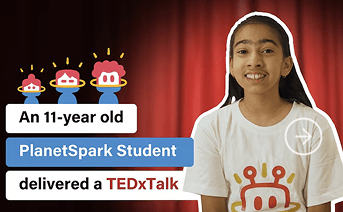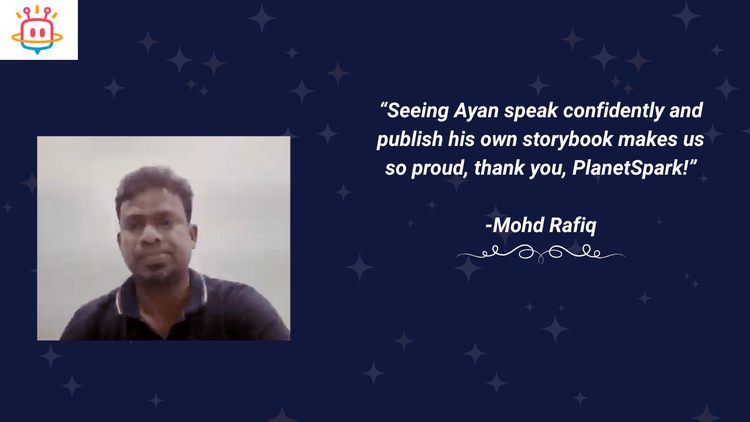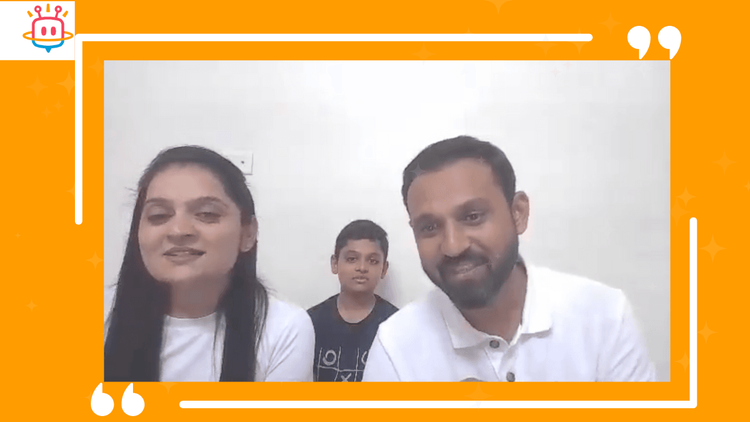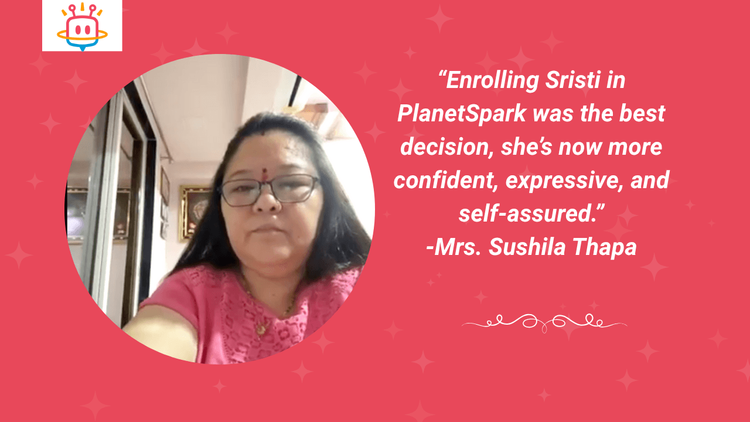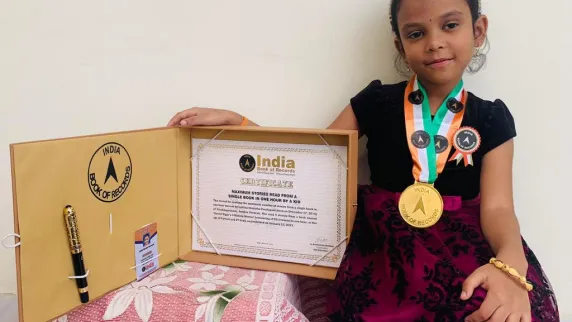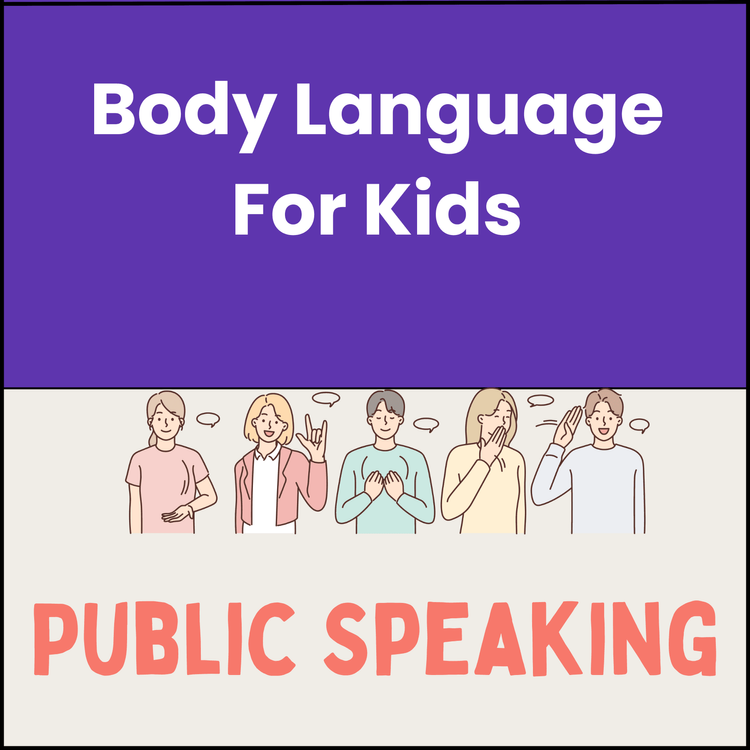Speech Topics for Class 8 Students That Inspire Confidence
Last Updated At: 18 Nov 2025
12 min read

Table of Contents
- Top Motivational Speech Topics for Class 8 Students
- Fun and Creative Speech Ideas for Class 8
- Social Issues and Awareness Speech Topics for Early Teens
- Environmental and Science-Based Speech Topics for Class 8
- Speech Topics About School Life and Personal Experiences
- Current Events and Global Issues Speech Topics for Class 8
- How to Structure Your Speech Effectively in Class 8
- Tips for Picking an Engaging Speech Topic for Class 8
- Practice Tips to Deliver a Confident Speech
- Why Choosing the Right Speech Topic Matters for Class 8 Stud
- Why Choose Planet Spark Public Speaking Course?
- Unlock Your Public Speaking Potential!
Imagine standing in front of your classmates, heart racing, and all eyes on you what you say can inspire, entertain, or even change minds. Public speaking is a skill every student should master, and choosing the right topic is the first step.
In this blog, we’ve compiled a wide range of speech topics for Class 8, including motivational ideas, creative prompts, social issues, environmental themes, school experiences, and current events. You’ll also find practical tips on structuring and delivering speeches confidently. To help students shine on stage, Planet Spark’s public speaking course provides expert guidance, interactive practice, and confidence-building techniques.
Top Motivational Speech Topics for Class 8 Students
Motivational speeches can inspire students, boost self-confidence, and encourage goal-setting. Here are some age-appropriate ideas:
The Power of Positive Thinking
How to Overcome Challenges in School
Setting and Achieving Personal Goals
Learning from Failures
How Perseverance Leads to Success
Importance of Discipline in Daily Life
Developing Self-Confidence as a Teen
The Role of Hard Work in Achieving Dreams
Inspiring Stories of Young Achievers
How Small Habits Create Big Changes
Motivational topics encourage students to reflect on personal growth and convey lessons they learn in everyday life.
Fun and Creative Speech Ideas for Class 8
These topics keep students engaged while allowing creativity to shine:
Take the stage with confidence—join Planet Spark’s interactive public speaking course
My Favourite Hobby and Why I Love It
If I Were the Principal of My School
My Dream Vacation
A Day Without Technology
The Funniest Thing That Ever Happened to Me
How I Would Improve My City
The Book That Changed My Life
Inventing Something Useful for the Future
If Animals Could Talk
My Favourite Cartoon Character
Creative topics encourage imagination, storytelling, and humour while keeping speeches age-appropriate.
Social Issues and Awareness Speech Topics for Early Teens
Students can use speeches to express opinions on important social matters:
Importance of Gender Equality
How to Fight Bullying in Schools
The Role of Teens in Community Service
Importance of Volunteering
How Social Media Affects Teen Life
Promoting Respect and Tolerance
Importance of Mental Health Awareness
Combating Peer Pressure
Helping the Less Fortunate
Understanding Cultural Diversity
Socially relevant topics teach students responsibility, critical thinking, and awareness about society.
Parents, give your child the gift of confident communication
Environmental and Science-Based Speech Topics for Class 8
These topics encourage curiosity, environmental responsibility, and scientific thinking:
Importance of Saving Water
Climate Change and Its Impact on Our Future
How Technology Is Changing Education
The Role of Science in Everyday Life
Renewable Energy and Sustainable Living
How Pollution Affects Health and Nature
Amazing Scientific Discoveries of the 21st Century
Importance of Recycling
How We Can Protect Wildlife
Future of Space Exploration
Science and environment topics develop knowledge, problem-solving, and awareness among students.
Speech Topics About School Life and Personal Experiences
Sharing personal experiences makes speeches relatable and engaging:
My Favourite Teacher and What I Learned from Them
A Memorable School Trip
My Most Challenging Subject and How I Tackle It
Lessons Learned from a School Project
How I Manage My Time Between Studies and Hobbies
Winning or Losing a Competition and Its Lessons
My Favourite School Event
An Experience That Taught Me Patience
Balancing Studies and Friendships
How I Overcame Stage Fear
Personal experience topics connect with peers and make speeches authentic and relatable.
Don’t just speak, inspire—start your journey with a PlanetSpark Public Speaking session today.
Current Events and Global Issues Speech Topics for Class 8
Students can discuss age-appropriate news, trends, or global issues:
How Young People Can Contribute to Climate Action
The Impact of Technology on Education
Importance of Learning Different Languages
Promoting Healthy Eating Habits
Global Health Awareness and Vaccination
How Sports Unite People Worldwide
Cyber Safety for Teenagers
The Importance of Space Research
Sustainable Fashion and Lifestyle
Understanding World Cultures Through Travel
Current events help students stay informed and develop critical thinking about the world.
How to Structure Your Speech Effectively in Class 8
A well-structured speech is the backbone of effective communication. For Class 8 students, a clear structure makes your ideas easy to follow, boosts confidence, and keeps your audience engaged.
1. Start with a Strong Introduction
Begin with a hook to grab attention. You can start with a question, a surprising fact, a quote, or a short personal story. Introduce your topic clearly and let your audience know what you will be discussing. Keep it concise and engaging.
2. Organise the Body of Your Speech
Divide the main content into 2–3 key points. Use examples, stories, or facts to support each point. For instance, if you’re speaking about environmental awareness, you could talk about pollution, recycling, and sustainable living as separate points. Logical flow is essential, so each idea leads naturally to the next.
3. Use Transitions Between Points
Smooth transitions help your speech flow. Phrases like “another important aspect is…,” “let’s consider…,” or “building on that idea…” guide the audience and make your speech sound professional.
4. End with a Memorable Conclusion
Summarise your main points and leave the audience with a strong takeaway. You can end with a call to action, a thought-provoking quote, or a personal reflection. Avoid introducing new ideas in the conclusion to maintain clarity.
5. Practice and Revise
Even the best-structured speech can falter without practice. Rehearse multiple times, refine wording, and ensure timing is right. You can also get feedback from teachers, family, or peers to improve your delivery.
A well-structured speech not only makes it easier to deliver but also ensures your ideas resonate with your audience. Planet Spark’s public speaking course helps students master speech structuring, storytelling, and delivery techniques, making every presentation impactful and confident.
Ready to impress your audience? Start practising with Planet Spark’s guided exercises.
Sample Speech Outline for Class 8 (3–4 Minutes)
Topic: The Importance of Reading Books
1. Introduction (30–45 seconds)
Hook: “Imagine a world without stories, without adventures, without the knowledge hidden in books—what would we do?”
Introduce the topic: “Today, I want to talk about why reading books is not just a hobby, but a key to learning and personal growth.”
2. Body (2–2.5 minutes)
Point 1: Expands Knowledge
Example: “Books teach us about history, science, and cultures we might never experience firsthand.”
Point 2: Develops Imagination
Story: “When I read my favourite novel, I imagined travelling to magical lands and meeting inspiring characters.”
Point 3: Builds Skills
Fact: “Reading improves vocabulary, communication, and critical thinking—skills every student needs.”
3. Conclusion (30–45 seconds)
Summarise points: “Books expand our minds, spark creativity, and make us better thinkers.”
Memorable ending: “So, let’s pick up a book today and open the door to endless possibilities.”
Pro Tip: Practise speaking slowly, use pauses for emphasis, and make eye contact with your audience.
Tips for Picking an Engaging Speech Topic for Class 8
Choosing the right speech topic is the foundation of a confident and memorable presentation. The right topic keeps your audience interested and makes it easier for you to express ideas naturally.
Here’s a step-by-step guide for Class 8 students:
1. Pick a Topic You Are Passionate About
Speaking about something you enjoy makes your speech lively and authentic.
Examples: hobbies, favourite subjects, personal achievements, or social causes.
Unlock your public speaking potential—start your free trial with Planet Spark today!
2. Keep It Age-Appropriate
Avoid overly complex or adult topics.
Ideal topics for Class 8 include school life, hobbies, motivational themes, environmental issues, or current events.
3. Consider Your Audience
Think about your listeners classmates, teachers, or parents.
Choose topics they can relate to and understand easily.
4. Make It Specific and Focused
Narrow topics are easier to cover in 3–5 minutes than broad subjects.
Example: Instead of “Technology,” try “How Smartphones Affect Teenagers’ Daily Life.”
5. Include Personal Experiences or Stories
Personal stories make your speech relatable and engaging.
Share lessons learned, achievements, or memorable experiences.
6. Ensure Enough Supporting Material
Pick a topic you can support with examples, facts, or anecdotes.
A well-researched topic adds credibility and confidence.
7. Test It Out Aloud
Practice speaking about your topic in front of family, friends, or a mirror.
If you can discuss it confidently, it’s a good choice.
8. Get Feedback
Ask teachers, mentors, or peers for suggestions to refine your topic.
Feedback helps make your speech more interesting and audience-friendly.
Turn stage fear into confidence
Enrol in a PlanetSpark Public speaking course and speak like a pro.
Practice Tips to Deliver a Confident Speech
Delivering a speech confidently can feel challenging, but with the right practice strategies, Class 8 students can speak clearly, engage their audience, and enjoy the experience. Here’s a step-by-step guide to practising effectively:
1. Start with a Strong Rehearsal
Practice in front of a mirror: Observe your gestures, posture, and facial expressions.
Use a timer: This helps ensure your speech fits within the 3–5 minute range.
Speak slowly and clearly: Focus on pronouncing words properly and pausing at the right moments.
2. Record and Review
Record your speech on a phone or camera: Listening to yourself helps identify areas for improvement.
Check for tone and pace: Are you speaking too fast? Too softly? Adjust accordingly.
Make small tweaks: Reword sentences that feel awkward or unclear.
3. Use Family or Friends as an Audience
Practice in front of someone familiar: This reduces nervousness while still giving a “real audience” experience.
Ask for feedback: They can point out strengths and areas to improve.
Try different reactions: Practice handling interruptions or questions confidently.
4. Focus on Body Language
Stand tall and confident: Good posture shows confidence.
Use natural gestures: Hand movements and facial expressions make the speech lively.
Make eye contact: Look at your audience, not just your notes.
5. Overcome Nervousness
Breathe deeply before starting: Helps calm nerves and maintain a steady voice.
Visualise success: Imagine delivering a flawless speech and receiving applause.
Embrace mistakes: Small slips are normal; keep going without panicking.
Choose, prepare, and deliver
Join PlanetSpark Public Speaking course now
6. Rehearse in Realistic Conditions
Simulate the speech environment: Stand where you will present, practice with a microphone if possible.
Use props or visuals: Practice handling slides, charts, or demonstration items smoothly.
Repeat multiple times: Repetition builds muscle memory and boosts confidence.
7. Incorporate Feedback and Improve
After each practice, refine your speech content and delivery.
Focus on clarity, enthusiasm, and engaging your audience.
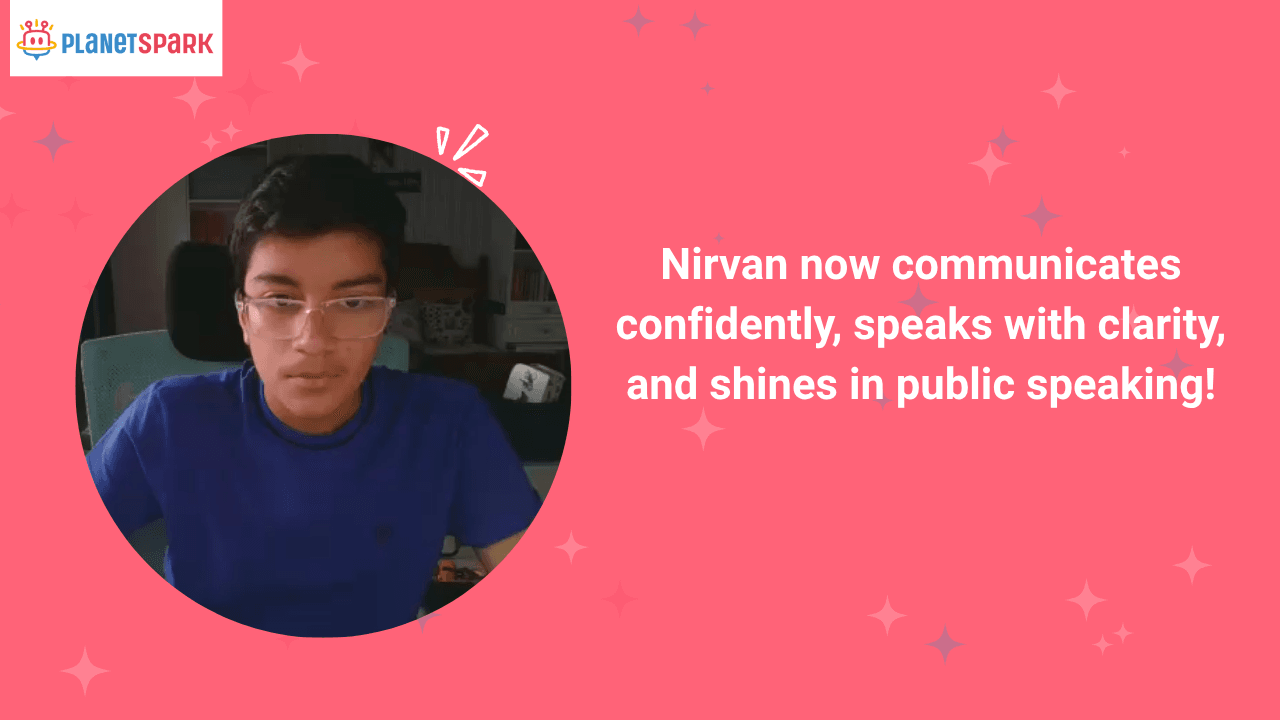
Nirvan now communicates confidently, speaks with clarity, and shines in public speaking!
Experience the same transformation—book a free trial of Planet Spark’s Public Speaking course today and help your child speak with confidence and clarity!
Why Choosing the Right Speech Topic Matters for Class 8 Students
Choosing the right speech topic ensures your audience stays interested and engaged throughout your presentation.
A topic you are passionate about boosts your confidence and makes your delivery natural and enthusiastic.
Age-appropriate topics allow you to express personal experiences, opinions, and stories, making your speech unique and memorable.
Focusing on a suitable topic simplifies research, helping you find examples, facts, and anecdotes easily.
The right topic encourages creativity, critical thinking, and problem-solving while making your speech informative and original.
Selecting an appropriate topic improves performance in competitions and classroom activities by showing preparation and clarity.
Planet Spark’s public speaking course guides students in picking engaging, age-appropriate topics and teaches structured delivery techniques to make every speech impactful and confident.
Why Choose Planet Spark Public Speaking Course?
Public speaking is an essential skill for students, helping them communicate ideas clearly, express opinions confidently, and shine in classrooms and competitions. Planet Spark’s Public Speaking Course is designed specifically for Class 8 students to develop these skills in a structured, interactive, and enjoyable manner. The course focuses on building confidence, enhancing communication abilities, and teaching effective speech delivery techniques.
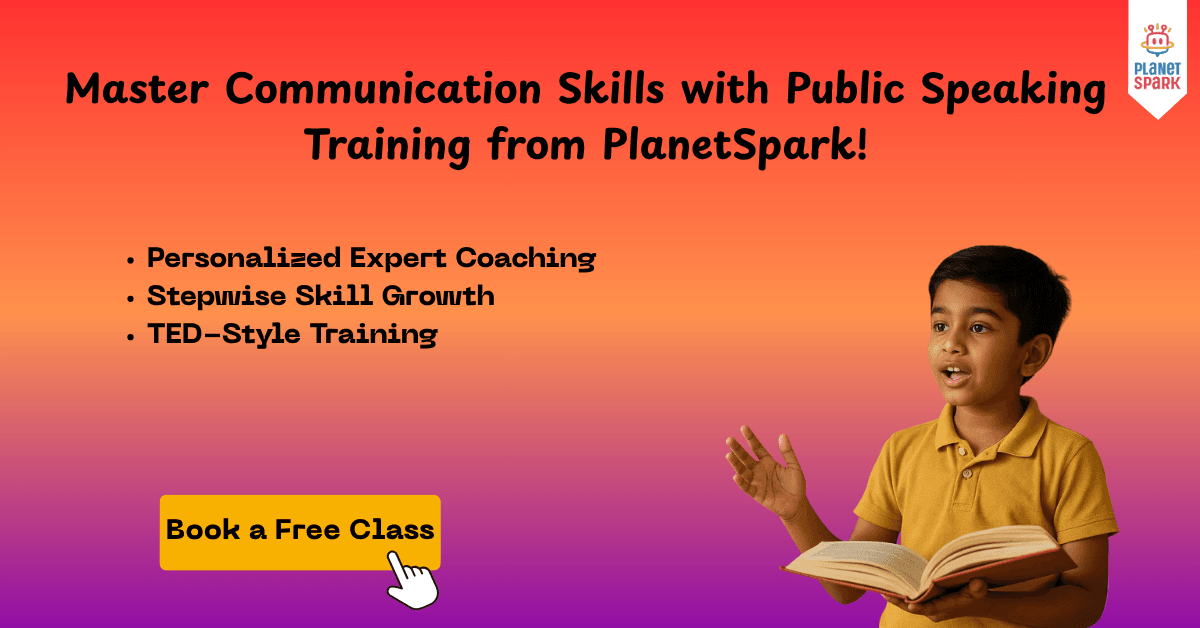
Key USPs of Planet Spark Public Speaking Course:
Expert Mentorship: Experienced instructors provide personalised guidance, helping students improve their tone, articulation, and clarity. They offer constructive feedback to refine each student’s speech skills.
Interactive Learning: The course includes fun activities, storytelling sessions, and live practice exercises. Students learn not only how to structure a speech but also how to engage the audience effectively.
Confidence Building: The program emphasises overcoming stage fear and developing self-assurance. Regular practice sessions, role-playing exercises, and one-on-one mentorship help students become confident speakers.
Structured Curriculum: Planet Spark provides a step-by-step learning path, covering topic selection, speech organisation, voice modulation, gestures, and presentation skills. This ensures that students master public speaking from basics to advanced techniques.
Practical Application: Students get multiple opportunities to practise speeches in realistic scenarios, preparing them for school presentations, debates, and competitions.
By enrolling in Planet Spark’s Public Speaking Course, students gain the skills, confidence, and stage presence needed to deliver impactful speeches. It’s a holistic approach that combines guidance, practice, and mentorship to transform young learners into confident and compelling speakers.
Unlock Your Public Speaking Potential!
Public speaking is a lifelong skill that starts in school. By choosing the right speech topics for Class 8, practising structure, and delivering with confidence, students can shine in competitions and everyday presentations. Planet Spark’s public speaking course provides expert guidance, interactive learning, and confidence-building exercises to help young speakers reach their full potential. Start exploring engaging topics, practise regularly, and watch your confidence soar.
Frequently Asked Questions
Good topics for Class 8 include motivational themes, social issues, environmental awareness, school life, personal experiences, and current events. Choosing a topic that interests you will make your speech engaging and easier to deliver.
Preparation and practice are key. Rehearse your introduction until it feels natural and visualize yourself speaking confidently. With time, nervous energy turns into excitement and control.
Typically, a Class 8 speech should last 3–5 minutes. This is enough to introduce the topic, discuss 2–3 main points, and conclude clearly without overwhelming the audience.
Yes, Planet Spark provides structured guidance, interactive practice sessions, and personalised mentorship to help students choose engaging topics, organise content, and deliver speeches confidently.
Choose a topic you are interested in, relevant to your age, and easy to explain. Make sure it allows you to share examples or stories, keeping your speech relatable and engaging.
Absolutely. Topics about hobbies, imaginative scenarios, personal stories, or funny experiences are great for creativity. Planet Spark also helps students brainstorm unique and engaging topics suited for their age and audience.
Meet Our Rising SuperStars
Get to know the learners who inspire excellence every day
Book Free Demo ClassDownload Free Worksheets
Personalized Communication Report
Record a video to get a AI generated personalized communication report for your child
Select Learner's Class

Hi There, want to try these
tips for your child with
LIVE with our expert coach?
Let's check your child's
English fluency

